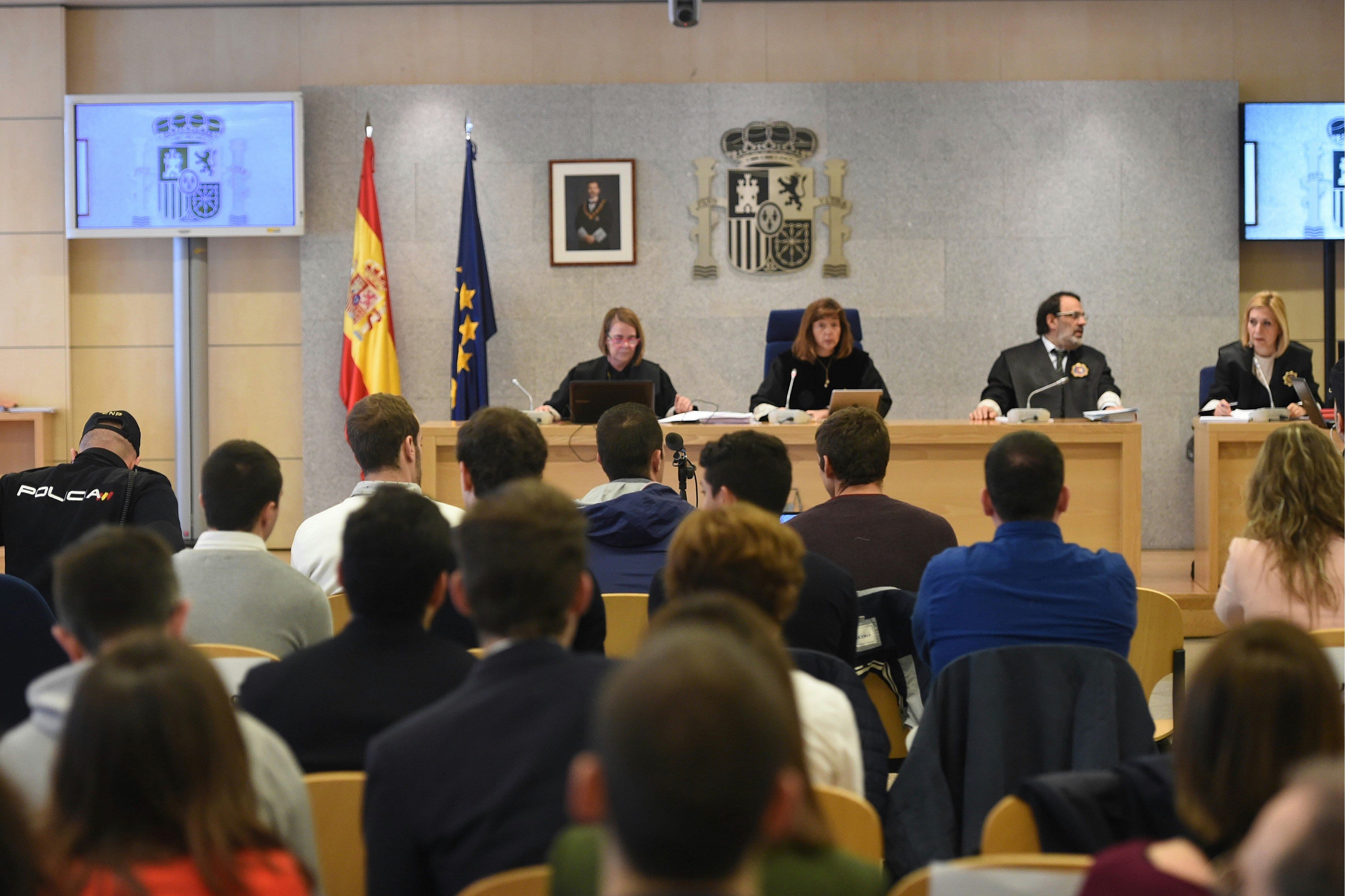The Altsasu group, eight young people facing charges of terrorism over a bar fight in which two off-duty Civil Guards and their girlfriends were injured, have been convicted of public disorder, but not terrorism. Judges at the National Audience court have sentenced them to between two and 13 years in prison for the crimes of attacking agents of the authorities, injuries, public disorder and threats. They found them not guilty, however, of terrorism, a charge defended by both the accusation and prosecutors. The court believes that no terrorist object has been proven.
That said, based on the "gravity of the facts" and their judgement that the fight was down to "ideological reasons and antagonism towards the Civil Guard", the judges imposed the maximum sentences possible for the charges, as defined in the Penal Code. They included aggravating factors of abuse of superiority and hatred.
The court imposed sentences of 13 years in prison for Oihan Arnanaz and Iñaki Abad, 12 years for Jokin Unamuno and Adur Ramírez de Alza, nine years for Julen Goikoetxea and Aratz Urrizola and two for Ainara Urkijo. On the other hand, they also ruled compensation of 9,200€ (£8,000, $11,000) for the Civil Guard lieutenant involved, 3,750€ for the sergeant and 6,100€ each for their partners.
After the trial, which took place in April, prosecutors had maintained the accusations of terrorism against the eight young people. They had asked for a variety of sentences, for between 12 and a half years and 62 and a half years in prison.
“It cannot be allowed in the 21st century”
Given the "gravity of the facts", the National Audience court defends imposing the highest sentences because "it cannot be allowed in the 21st century that, in a democratic state under the rule of law, people are deprived of being able to move in freedom only because they are Civil Guard or their partners", nor that such people "can only go to certain places and cannot go out at night to spend some time on leisure and fun".
The court also believes it to have been proven that the accused not only knew that the pair were Civil Guard, but also that they acted motivated "by their clear antagonism and disdain for the Civil Guard and by clear ideological motives trying to expel this class from Altsasu". During the trial, the Ospa Eguna festival in opposition to the presence of the police forces in the town was brought up.
The judges argue that, otherwise, "it's not understandable that they should attack in this way two Civil Guard and their partners when they had been working there scarcely one of them a year and the other barely 20 days". The most serious injury suffered by any of the four was a broken ankle.
Neither a bar fight, nor terrorism
The court has rejected the defence's argument that it was a "bar fight or a small incident or argument". Justifying this, the sentence refers to the "attitude of brutality adopted by the accused", the "climate of verbal violence with insults and direct threats" and "the fact that the victims weren't helped by anyone present at that time".
Despite that, they also reject the accusation of terrorism. According to the judges, no terrorist "objective" has been proven, nor that any of the suspects at that time supported ETA's proposals. Nor is there any record of any link between the eight and the terrorist group, nor that their intention was to cause terror, seriously alter the peace or subvert the constitutional order. They do however link some of the accused with the movement against police presence in the area.
“Professionalism” and “bravery”
The sentence also emphasises the "significant professionalism" of the Civil Guard involved, who it believes didn't allow themselves to get carried away by the alleged aggression against them, nor the supposed provocations from the suspects. On the other hand, they also highlight the "bravery" of the agents' partners, who "weren't helped by any of the people present".

